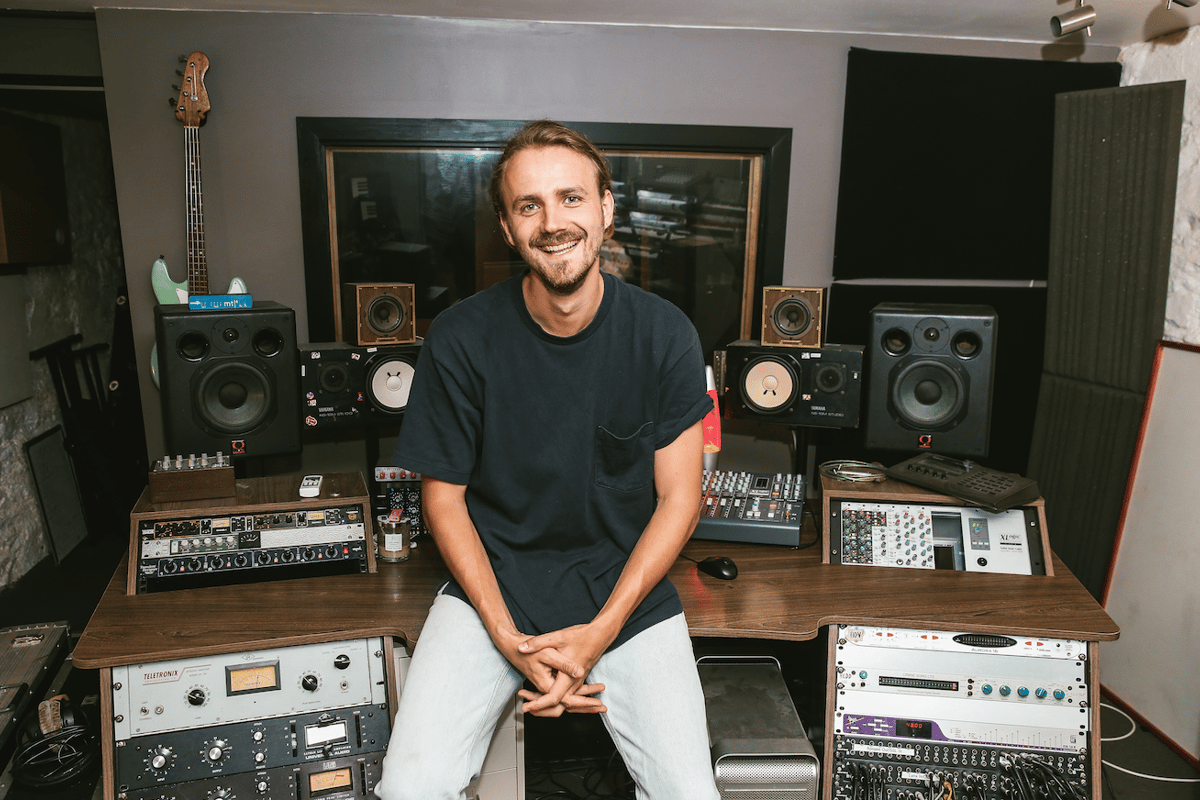Native Tongue is showing young artists the road to success can be paved by publishing

Melbourne-based publishers Native Tongue and Music Under Wings, a Victorian government initiative facilitated by The Push and are teaming up to guide young artists into the world of publishing.
Four aspiring songwriters will participate in the Native Tongue Songwriters Stream; a seven-week mentorship program with Kon Kersting and Plutonic Lab, two of Native Tongue’s most established and prolific songwriters.
“I guess publishing’s not something that… it’s a bit of a dark art for a lot of people,” Native Tongue head of creative services Matt Tanner told TMN.
“It sort of sits in a dark corner of the room, so I guess we’re trying to shed some light for those writers on what publishing does and what publishing is and what publishing can be for them.”
Tanner maintains that a lot of young musicians have the skewed vision of publishing which leads to the thought that it’s all about writing the jingles for advertisements; this is a myth that Native Tounge would like to dispel.
“I think a lot of people think that publishing equals synchronisation. I think that’s the broad misconception is that’s what publishing is; publishing is about looking after the rights of the songwriter and their music and their writing ability.
“So all writers are a little bit different, but it’s certainly about the writing and the song.”
Kersting – one of the talented mentors in the Songwriters Stream program – was already a prolific music producer, having worked with the likes of The Jungle Giants, Tia Gostelow and The Belligerents, when Native Tongue signed him to produce and write music in May of this year.
It was his collaboration with Brisbane artist Mallrat on her Hottest 100 charting song Better and EP that flicked a switch for him.
“We wrote two songs together, so we wrote Groceries and Better together,” Kersting shared with TMN.
“I was really proud of that ’cause that was sort of one of my first forays into co-writing that I’ve had and Grace [Shaw, aka Mallrat] is incredible. So talented, so open to ideas as well. I’m very proud of both of those songs and obviously, they’ve done quite well as well which is always amazing to see. Even if they hadn’t done well I would have still been very, very proud of them.”
Kersting agrees that while publishing and synchronisation are often lumped together in the same category, it’s a needle in a haystack situation.
“Syncs are nice, and there’s obviously publishers that specialise just in syncs but it’s not the entire thing of publishing.
“I think people need to realise that getting syncs is not as easy as just being like ‘Hey, I want a sync’ and then you get a sync. It doesn’t happen like that.
“Getting a sync is almost like getting a label deal or something. It’s quite rare and then obviously you have those dream stories of people getting those crazy syncs and being able to buy themselves a house. But I think that’s definitely not the norm.”
While he might not have been able to retire in a beachside mansion with his publishing work, Kersting maintains that his experience in publishing and co-writing has opened his eyes less stressful creative process.
“I sort of have both experiences. Playing in a band [Kersting plays bass for The Belligerents] and then also doing the co-writing thing and I think doing the co-writing thing gives you… There’s not as much pressure because essentially you’re just writing a song,” Kersting explains
“When you have your own there are there are so many other things that you need to consider… Whereas if you’re doing a co-writing session you’re literally just writing a song.
“A lot of the time stuff doesn’t get used but you still end up with an idea that you might be able to use somewhere else. It’s super rewarding. It’s actually a lot less stressful than putting out music yourself.
Tanner wants this year’s Songwriting Stream participants, Melbourne musician Gena Rose Bruce, Calum Newton aka Candy, electronic hip hop artist Caleb Williams and Kylie Chirunga aka KYE, to get the full experience of working with a publisher.
“We want them to go through a practical pitch process. So we’ll present each of the mentors with a brief, that is a live brief that is from an existing A&R brief.
“We want them to go through the process, get an understanding of how writing a piece of music to a brief goes. We’ll pitch it to the ANRs and get feedback, so it’s a real-life pitch that we would like them to experience.”
While it might seem scary for young artists to write songs for other artists, Kersting maintains that it’s that exact skill that will get them noticed.
“Don’t be afraid of writing different things. Just because something sounds different to something that you’ve written before doesn’t mean that it’s bad. It’s just different. Find a publisher that works for you. Try to find a publisher that’s excited about the songs you’re writing.”






























